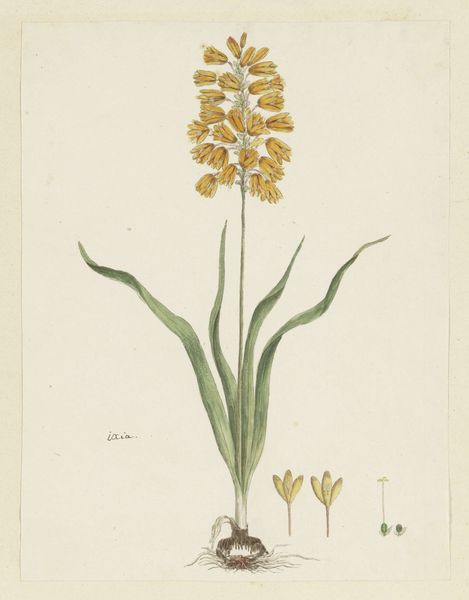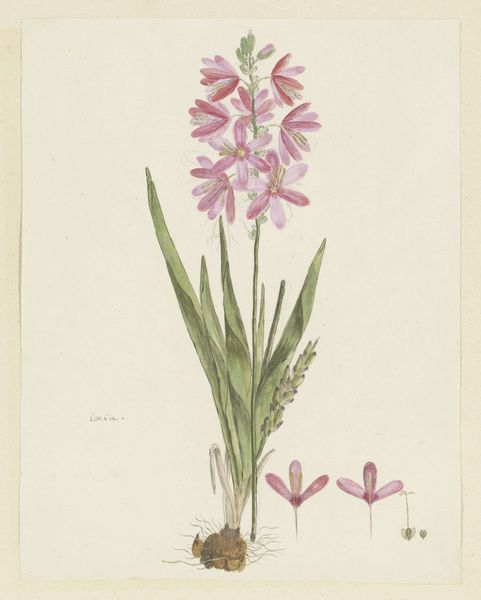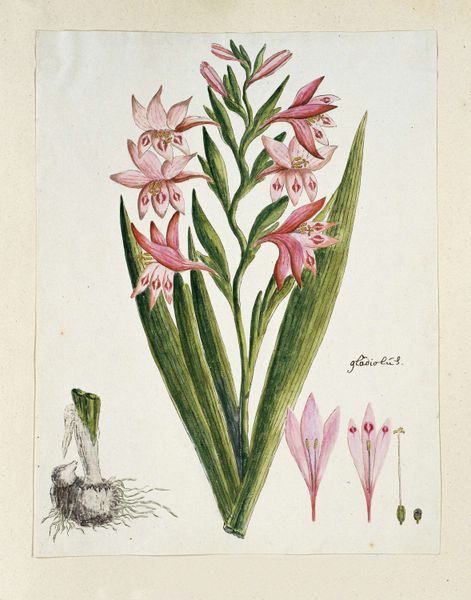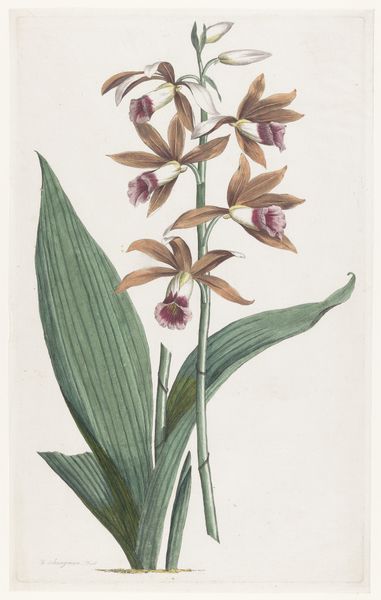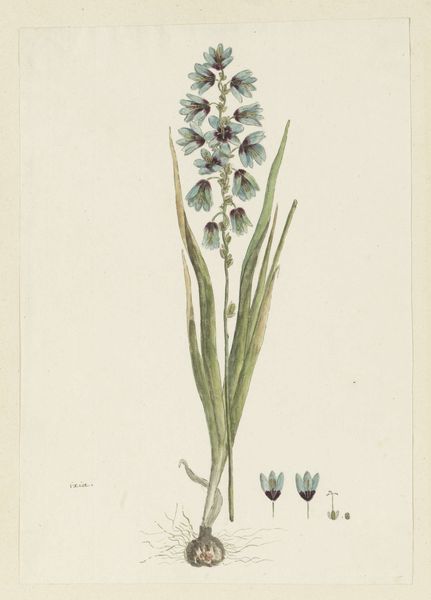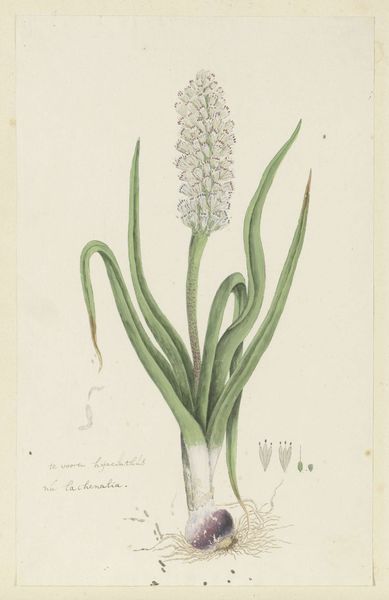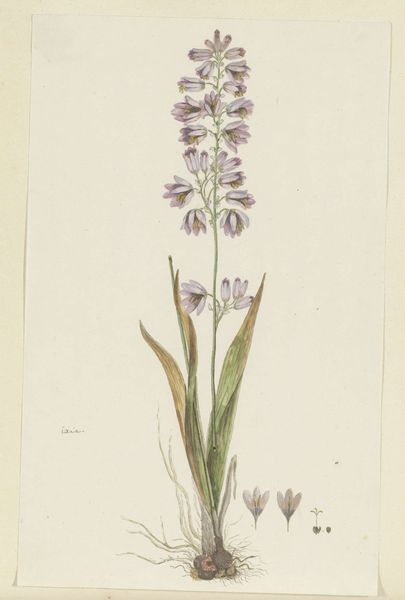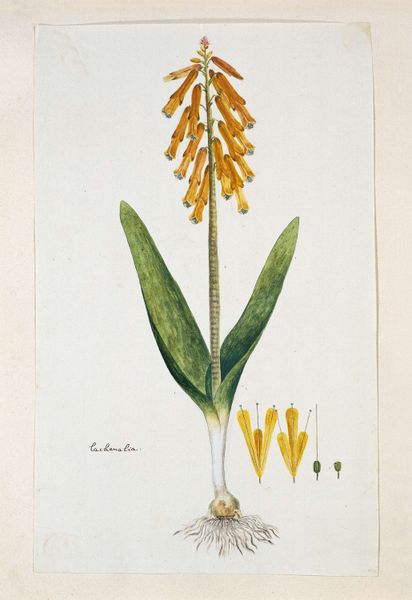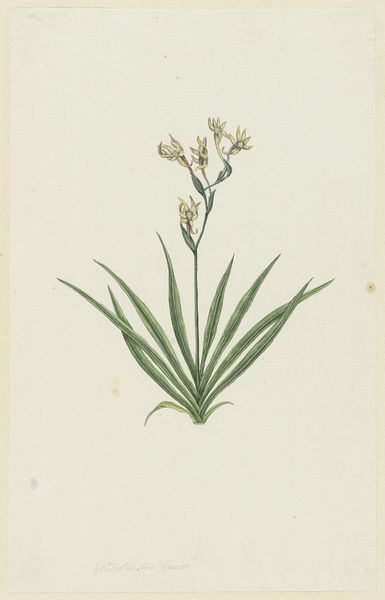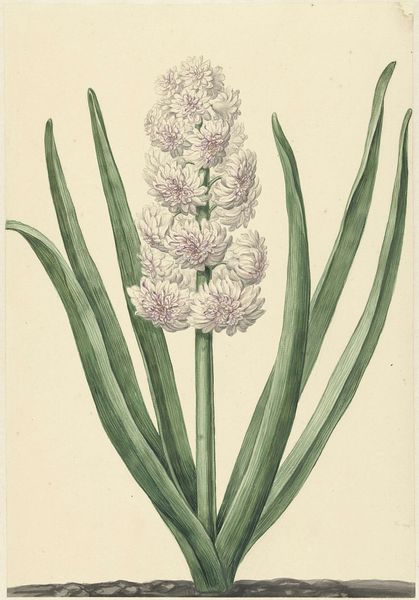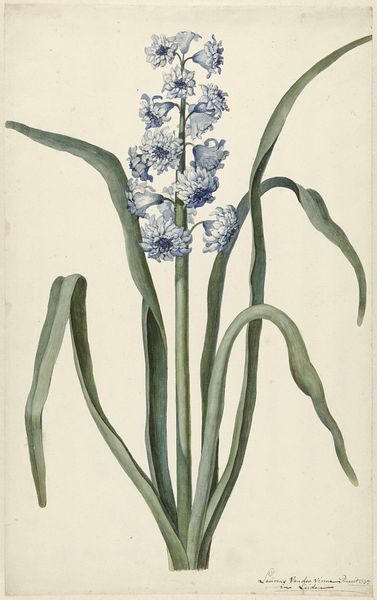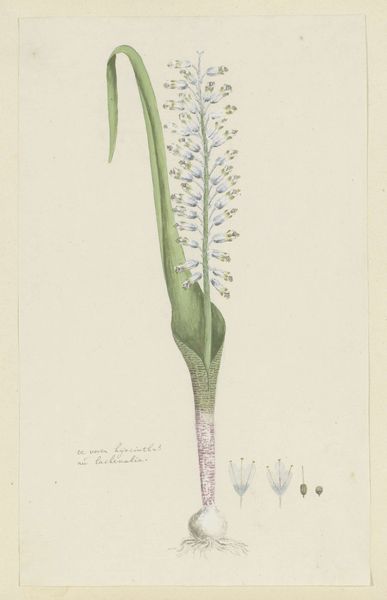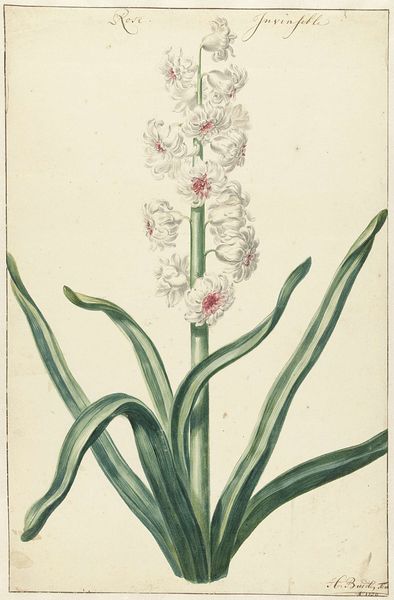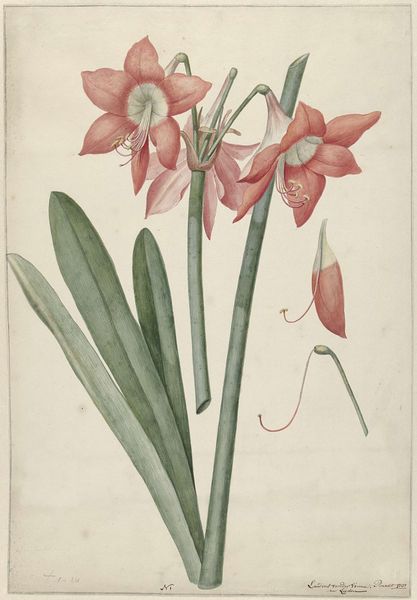
Dimensions: height 660 mm, width 480 mm, height 332 mm, width 250 mm, height mm, width mm
Copyright: Rijks Museum: Open Domain
Robert Jacob Gordon made this watercolor of Ixia paniculata, a flowering plant endemic to South Africa, sometime before his death in 1795. While seemingly an objective record of the natural world, botanical illustrations such as these are products of a very particular cultural moment. During the 18th century, European powers were engaged in intense colonial expansion, and natural resources became a commodity. Gordon, a military officer in the Dutch East India Company, was stationed in Cape Town and used his position to explore and document the region's flora and fauna. His drawings, while beautiful, were also tools of empire, contributing to a scientific understanding of the natural world that could be exploited for economic gain. The institutional structures of colonialism shaped what he saw, and how he recorded it. To fully understand this image, we might consult botanical texts, colonial archives, and travel narratives. Only then can we appreciate how even the most seemingly innocent image is embedded in a web of social, political, and economic relations.
Comments
No comments
Be the first to comment and join the conversation on the ultimate creative platform.
